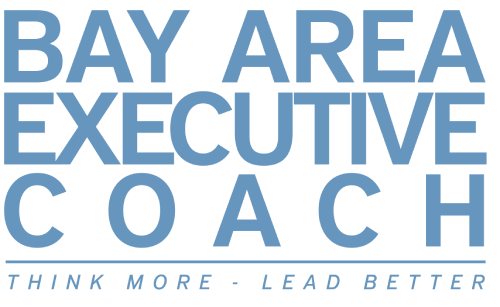Congratulations on securing a new role within your existing company or at an entirely new firm! This is a significant achievement you should never take for granted. Most likely you went down that stressful road of applying, interviewing, interviewing some more, negotiating terms, and finally accepting the offer.
Now that you are in your new role, your challenge becomes succeeding at it. Everyone wants to get off to a good start when starting a new job, and that usually translates to what you do and how you act in your first 90 days on the job.
Why 90 days? The reason is that 90 days represents a quarter of the work year, and many businesses measure their performance in terms of quarters: Q1, Q2, etc. Therefore, your critical period for fitting in or falling out commonly occurs within those first 90 days in your new role.
Fortunately, you’re not entirely at the mercy of forces beyond your control when trying to establish yourself as a valuable new hire or newly promoted employee. Let’s look at a set of proven strategies you can employ right away to help ensure your success in your new position.
In the First 30 Days
- Introduce Yourself Naturally, And Frequently, To Your New Co-Workers.
It’s natural to feel shy when joining a new company. You’re thrust into a new environment filled with people you don’t know but who know each other. If you’re like most people, you don’t necessarily want to call a lot of attention to yourself in the beginning. But in the first days of a new job, it’s important to project your interest and enthusiasm in ways that feel natural and non-threatening. Introducing yourself to your new coworkers in a friendly and sincere manner is a great way to accomplish this, with the side benefit of working yourself into the office infrastructure. So, find the timing that feels right and make quick, energetic, but sincere introductions to the people you don’t know yet. It could be something as simple as:

“Hi, I’m Mary Jones and I was hired-on a few days ago as the new systems analyst for our group. I just wanted to introduce myself and say that I look forward to working with you.”
If meeting new people is a little difficult for you, ask others for help. For starters, mention to your boss that getting to know your colleagues is a priority and ask them for a list of people you should get to know. In meetings, you could ask the organizer to give you some time at the beginning or end to introduce yourself. Here are some tips for making your introductions go smoother:
- Prepare ahead of time. Rehearse your introduction ahead of time so you have a “script” ready to roll out when you meet a new person. Keep this script brief and remember that it has to sound real and not like something you’re reciting from rote memory.
- Pay attention to your surroundings and other people. Don’t interrupt a meeting to introduce yourself or speak too loudly in communal spaces. As you’re introducing yourself, observe how the other person is reacting. If they seem distracted, keep it short. If they seem receptive, you may want to get to know this person better. You can make a great first impression by being highly tuned-in to the other person: what they’re saying and how they’re responding to you, both verbally and non-verbally.
- Make a concerted effort to remember names. When introducing yourself, there’s a common tendency to pay total attention to what you’re saying while listening very little to what you’re hearing. It can be downright embarrassing when someone tells you their name and you forget it almost immediately. To avoid this problem, focus on the other person’s name and say it to yourself, and back to them, several times. But don’t get overwhelmed by this endeavor, especially when you’re meeting many new faces. Always remember that honesty has its virtues. Saying: “I’m sorry, I’ve met so many new people in the last few days. Could you please remind me of your name again?” will likely win you points as we’ve all been there at one time or another.
- Ask Well-Timed Questions
As a new employee, part of your challenge is coming up to speed in your new role quickly. You can accelerate this process by asking your managers and peers for information. Therefore, it’s important to ask questions at the right moment when you don’t know something.
- Build Friendships
 Once you’ve made some introductions and have a sense of who you’ll be working with, ask a new colleague out to lunch or coffee. It could be the person sitting next to you or another newcomer who started with you. Developing a trusted relationship will make you feel more comfortable as you’re getting to know your new workplace. Don’t be discouraged if you don’t bond with someone right away or connect with a new lifelong friend. Your goal is finding compatible people who make you feel part of the team.
Once you’ve made some introductions and have a sense of who you’ll be working with, ask a new colleague out to lunch or coffee. It could be the person sitting next to you or another newcomer who started with you. Developing a trusted relationship will make you feel more comfortable as you’re getting to know your new workplace. Don’t be discouraged if you don’t bond with someone right away or connect with a new lifelong friend. Your goal is finding compatible people who make you feel part of the team.
- Learn to Navigate and Work Within Your New Environment
When you don’t know where important things are located, even the nicest workplace setting seems intimidating. Overcome this situation by making a concerted effort to locate the restrooms, the break/lunch room, the drinking fountains, the stairs and elevators, the boss’s office, the fitness room, and the other important locations within your workplace. If you haven’t been given a tour, consider asking a colleague for one.
- Plan on Ways to Add Value to Your Company
You were hired or promoted because there’s a lot of work to be done and the hiring manager felt you were the best person to do it. Show them they made the right choice from your first day on the job. In your first week, your main priority should be to absorb information, but also try to add value to your company in small, meaningful ways. Here are some ideas for adding value right from the start:
- Ask your manager what their biggest pain points are. Establish yourself as someone who wants to help by tackling existing problems. Once you know their answer, think about possible solutions you can help with. Being proactive is almost always valued in the workplace and asking about existing problems shows you think that way. So, if you see something you can do to help, consider doing it (but be careful not to overstep your position or infringe on anyone else’s territory).
- Think back to your interviews. What were the main questions you were asked? How did you respond? Now that you have the job it’s time to put your words into action. Consider writing up short proposals for how you would tackle those challenges or problems as a new employee. Present your ideas to your manager or coworkers at team meetings and gauge their reaction. Being a leader or innovative thinker adds value to your personal brand.
In the Next 30 Days
Now you’re a month into your new job and hopefully things are going well and you’ve made some friends and inroads into your office culture and work. Now it’s time to fully settle into your role and apply your skill set en-force to make things happen. Here are some strategic tips for this next critical phase of your new job experience.
- Get To Know Your Team Better
Initially you wanted to connect names with faces. Now you want to get to know who these people are and what they’re good at. Observe how everyone works and collaborates, and look for patterns and trends. Does Person A like to work with Person B but not so much with Person C? Who handles feedback well and who chafes at the slightest criticism? Get to know the team and you’ll gain valuable insights into the company and group culture. At the same time, be more open about yourself and allow others to know you more deeply, too.
- Get Organized and Set Good Habits
View your new role as a fresh start and a time to drop old tired routines or bad habits.
Use your next month on the job to organize your calendar and to-do lists, and work to manage your time efficiently. You can also identify and list the new skills or practices you want to develop.
- Define Success With Your Manager
Now is probably a good time to meet with your boss to discuss and clarify your mutual expectations. This includes understanding how you will work together, how you will get the resources you need to do your job well, and how your job performance will be assessed. If you have some early wins, be sure to emphasize those. Ask about your priorities and your goals in the coming months. Strive to ensure your expectations align with your boss’s.
- Be Humble and Open-Minded
These qualities are part of the empowering mindset called “emotional intelligence.”
When we’re humble, we acknowledge we can’t go it alone. Therefore, thank the people who are showing you the ropes, don’t take credit for work you haven’t done, and listen more than you speak. Remember, you’ve never done this exact job in this exact setting before, so no matter how much experience you have, it pays to keep an open mind.

In Days 60-90
This is the time to establish yourself as an integral, and essential, member of the company and the team. You should be hitting your stride now, and setting yourself up to do your best work. Here are some tips to help you succeed during this culminating phase of your first 90 days:
- Challenge Yourself
Our power is often greater than we think. Set ambitious goals for yourself, work toward those goals with focus and tenacity, striving to reach higher each time. You may not always achieve the goals you set, but by applying yourself with determination and energy you’ll achieve genuine personal and professional growth.
- Re-establish Your Personal Boundaries
When you first started you may have set aside your usual boundaries to establish yourself as an effective and reliable worker. Perhaps one week you stayed late every night to get all your work completed, or you came in on weekends to finish up challenging assignments. This is a natural response in a new setting; we want to be obliging so that others will accept us. However, there comes a time, such as within this 60-90 day timeframe, where you can begin to re-establish the boundaries that enable you to do your best work. While you should continue to be a team player, learning to say “no” when necessary will help you focus on your goals and manage your time more effectively.
- Set Up A 90-day Review
A 90-day review for new employees is common practice in many companies, but not all companies. If your company is among those that don’t automatically do this milestone review, you should request it with your boss, even if it’s done informally with no written report.
This is a simple way to verify that you’re on a good path. You can take this opportunity to provide a status update on the goals you laid out for yourself in the first 3 months. You can also work with your boss to plan new goals for your next 3 to 6 months.
- Reconnect With Old Colleagues and People in Your Professional Network
Even if you’re happy in your new job and the company is happy with you, it’s still important to maintain your professional network. The uncertainty of the economy and the job market implores us to stay connected with people we know professionally. Networking is also a great way to stay in tune with the job market and your profession. Active networking doesn’t necessarily mean you’re always looking for a new job. Rather, it’s an aspect of growing and sustaining a successful career that you’ll be practicing for as long as you’re working.
- Go Easy on Yourself
It’s quite possible that not everything is going to go perfectly during your first 3 months on the job. You’ll undoubtedly make mistakes and miscues, and perhaps even have to deal with a few difficult personalities who seem unwelcoming for reasons you can’t understand. Don’t take these kinds of problems to heart. Believing in yourself is key to succeeding in a new job.
Also, don’t fixate on what you have yet to accomplish. Focus instead on how far you’ve already come and where your hard work will take you next. Remember, you were chosen from among a pool of other qualified candidates because you had something special to offer. Value your skills and go easy on yourself when you encounter difficulties.
- Continue Learning
Think of your new job as not just a way to earn a living but as a way to receive a valuable education and training while being paid. There are new skills and areas of knowledge to acquire with almost every professional job. Take advantage of these opportunities.
Show your manager you’re open to learning and are interested in whatever educational opportunities are available to help you in your work. This may entail tapping into existing employee development programs right within your company or turning to the outside through established firms like the American Management Association or newer platforms like LinkedIn Learning, Himalaya, and WOBI.
A Few Words of Wisdom from Michael D. Watkins
I couldn’t conclude this discussion without turning to an excellent resource for succeeding in a new job that’s widely considered a classic in the field. I refer to “The First 90 Days – Proven Strategies for Getting Up to Speed Faster and Smarter” by Michael D. Watkins. In his book, Mr. Watkins offers some powerful and highly practical strategic tips for excelling in your new role, a few of which I’ll summarize here:
- Prepare Yourself
Starting a new job is entering into a new business culture that has similarities, and differences, with your prior work experiences. You want to be as thoroughly prepared as possible to manage and adapt to this new environment. Watkins advises new hires to learn as much as possible about the company before their first day. This can be done by researching websites, on-line articles, newspapers and magazines, blogs, analyst reports, and other publicly available sources to gain as much understanding and insight as possible about the company, its products, markets, financials, and reputation.
If possible, request a pre-starting day tour of where you’ll be working to gain some familiarity with your workplace. In that tour ask your soon-to-be manager to introduce you to the key people you should be connecting with early on. In your first 90 days make it your top strategy to observe the status quo and try your best to blend in.
- Negotiate Your Success
“Negotiating” in this sense means engaging in ongoing and constructive dialogues with your boss and management that build a case for your growth and advancement within the organization. Watkins advises proactively engaging with your new manager to ensure a clear path to success. He presents ways to plan for the “Five Kinds of Conversations” (situational diagnosis, expectations, resources, style, and personal development) that every employee should be having with their manager on a continual basis. Watkins contends it’s the new employee’s responsibility to make their relationship with their manager work.
- Achieve Alignment

Alignment, in this case, refers to how you relate to the greater whole of the organization. While you may not have the opportunity to reorganize your organization in your first 90 days, identifying misalignments – things that just aren’t working right – should be a checkbox on your to-do list. Watkins offers a useful piece of advice: reframe the SWOT (strengths, weaknesses, opportunities, threats) workplace analysis into a TOWS (threats, opportunities, weaknesses, strengths) analysis. This re-prioritizing places the focus on the external environment (threats and opportunities) as opposed to internal capabilities (strengths weaknesses), an approach that leads to more and better problem-solving strategies that bring people and organizations into alignment.
- Build Your Team
This can refer to the informal team you build of people you find compatible and helpful in performing your work. Internal networking should be high on your first 90 days agenda as you work to solidify your position within the organization. These informal alliances can prove as valuable as the formal teams you may be asked to build or join for carrying out business objectives.
- Accelerate Everyone
Realize that your own success and advancement can accelerate success for everyone you interface with, and act accordingly by promoting plans and ideas that benefit the entire group or team, not just your own career. Start your new job with the idea that you’re working to improve everyone around you, and collectively the results will be that much better for all.
In Closing
Starting a job at a new company or receiving a promotion to a new job at your current company can be an emotional rollercoaster. There’s elation and satisfaction, but also worry and trepidation. However, by applying the strategies listed in this article, you can make a strong statement within your first 90 days on the job that you not only belong there, but you’re an emotionally intelligent change agent who’s intent on improving and enhancing the workplace for everybody.
When you’re seated at the top of the ladder the view is great, but keeping your seat requires constant effort. Such is the challenge of being a CEO. Read our article on 10 Top Traits of Successful CEOs!
Resources
There are plentiful resources available on the topic of succeeding in your first 90 (or 100) days in a new job. Here’s a short selection:
Books
Master Your Next Move: The Essential Companion to “The First 90 Days” by Michael D. Watkins
The Executive Transition Playbook: Strategies for Starting Strong, Staying Focused, and Succeeding in Your New Leadership Role by Hilary Potts
The New Leader’s 100-Day Action Plan: How to Take Charge, Build Your Team, and Get Immediate Results by George R. Brandt
Your Next Move: The Leader’s Guide to Successfully Navigating Major Career Transitions (audiobook) by Michael D. Watkins
The New Leader’s 100-Day Action Plan: Fourth Edition: How to Take Charge, Build or Merge Your Team, and Get Immediate Results by John A. Lawler, George B. Brandt, Jayme Check
YouTube Videos
14 TIPS to Start Your New Job – First Day at Work – How to make a great first impression
How to Introduce Yourself at a New Job (Make a GREAT First Impression)
The First 90 Days® – 5 key questions for your new role with Michael D. Watkins
New Job? The First 90 Days Are Critical To Your Success
5 Tips to Have an AWESOME first week at a NEW JOB
The First 90 Days w/ Stacey Payne
Podcasts
Starting a new job? Here’s how to ensure it’s a success
Starting a new job; the first 90 days. Key actions to ensure long term success with Robert Moment
Make the Most of Your First 90 Days with Kelli Thompson
The First 90 Days – What You Will Learn
Make the Most of Your First 90 Days in a New Job, with Joey Price
Assessment Tool
We have created a self-assessment tool for those planning to start a new job. The tool will help you identify and clarify the main elements affecting you as you start your job: your role, your boss, your coworkers, your office and business culture, your personality and professional goals, among other items.
To download our “Success in a New Role Self-Evaluation Form” and start your self-assessment, just click this link.
Featured photo sourced from Pexels which can be found here and secondary photo also sourced from Pexels can be found here. Third photo also sourced from Pexels can be found here.










